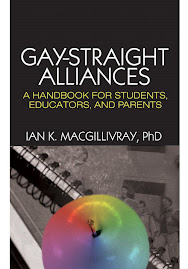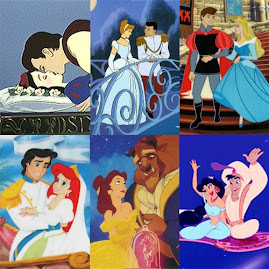
About Me
- kendra
- heyy...my names kendra. I'm a sophmore @ ric studying to become an Eled. teacher with a concentration in social studies. I run xc and track for RIC and played soccer my freshmen year. I've been with my boyfriend for 5 years & goin strong haha<3 FYI me and katie are cousins :)so there's a little about me...ttyl
Monday, April 21, 2008
So in class thursday everyone showed up and it went well. We discussed each persons job and found quotes within the texts that we can use to connect with our service learning experiences. I feel confident with our group and how our project will come out in the end; we all seemed as though we were on the same page & understood the direction of our powerpoint. :)
“Privilege, Power, and Difference” by: Allen G. Johnson
Context/ Premise:
Saying the words, privilege, power, race, discrimination, acknowledgment, recognition, gender, silence, violence, ignorance, social systems, community, people, rejection, school, solutions, oppression, change, patterns, talk, languages, competition, fear, leverage, individuals, and avoidance.
Argument:
Allen G. Johnson argues that without recognizing privilege and power we can do little to overcome it, with knowledge and the right language we are better able to produce solutions to the problems surrounding such inequalities.
Evidence:
- “The challenge we face is to change patterns of exclusion, rejection, privilege, harassment, discrimination, and violence that are everywhere in this society and have existed for hundreds…of years.”
There are certain aspects of our society that have been so engrained within us that it makes it difficult to change. Recognizing the discrimination within our society and addressing it are the changes that are necessary to challenge the “hundred years” of indifference.
- “Large numbers of people have sat on the sidelines and seen themselves as part of neither the problem nor the solution.”
I feel like this is why it is so difficult to speak the words and make changes within our society. People feel as though they are neither the problem nor solution and so they don’t see how they can contribute or change the things which have been set in place and engrained for centuries. Change begins with individuals and therefore, what each person does is necessary towards moving in the right direction of speaking the words and using the right language.
- “There is less attention given to the millions of people who know inequalities exist and want to be part of the solution.”
Sometimes it takes more than simply knowing things are not equal and it can take time before people hear your voice, but that does not mean that you should be silent. Change can make people feel fearful of its consequence and so the people that do recognize the inequalities are not fully heard because they are not given that attention. It is seen in many issues we know about today for example, there is still an ongoing fight for equalities among those who are gay or the minority. Because they are not the popular belief or norm, issues such as gayness and race are going to be silenced more than the culture of power.
- “The problem of privilege and oppression is deep and wide, and to work with it we have to be able to see it clearly so that we can talk about it in useful ways.”
This quote addresses the concept that we have to understand and know what is going on so that we can actually do things which are worthwhile and productive. By talking about issues with the right language we are better apt to address the issues which have been silenced.
- “privilege doesn’t necessarily lead to a “good life,” which can prompt people in privileged groups to deny resentfully that they even have it.”
I liked this quote because there are people in the privileged state that do not feel as though they are privileged. Privilege does not necessarily mean that everyone has it made and it is for that reason that those in the lesser portion of the privilege scale do not feel as though they reap its benefits.
Context/ Premise:
Saying the words, privilege, power, race, discrimination, acknowledgment, recognition, gender, silence, violence, ignorance, social systems, community, people, rejection, school, solutions, oppression, change, patterns, talk, languages, competition, fear, leverage, individuals, and avoidance.
Argument:
Allen G. Johnson argues that without recognizing privilege and power we can do little to overcome it, with knowledge and the right language we are better able to produce solutions to the problems surrounding such inequalities.
Evidence:
- “The challenge we face is to change patterns of exclusion, rejection, privilege, harassment, discrimination, and violence that are everywhere in this society and have existed for hundreds…of years.”
There are certain aspects of our society that have been so engrained within us that it makes it difficult to change. Recognizing the discrimination within our society and addressing it are the changes that are necessary to challenge the “hundred years” of indifference.
- “Large numbers of people have sat on the sidelines and seen themselves as part of neither the problem nor the solution.”
I feel like this is why it is so difficult to speak the words and make changes within our society. People feel as though they are neither the problem nor solution and so they don’t see how they can contribute or change the things which have been set in place and engrained for centuries. Change begins with individuals and therefore, what each person does is necessary towards moving in the right direction of speaking the words and using the right language.
- “There is less attention given to the millions of people who know inequalities exist and want to be part of the solution.”
Sometimes it takes more than simply knowing things are not equal and it can take time before people hear your voice, but that does not mean that you should be silent. Change can make people feel fearful of its consequence and so the people that do recognize the inequalities are not fully heard because they are not given that attention. It is seen in many issues we know about today for example, there is still an ongoing fight for equalities among those who are gay or the minority. Because they are not the popular belief or norm, issues such as gayness and race are going to be silenced more than the culture of power.
- “The problem of privilege and oppression is deep and wide, and to work with it we have to be able to see it clearly so that we can talk about it in useful ways.”
This quote addresses the concept that we have to understand and know what is going on so that we can actually do things which are worthwhile and productive. By talking about issues with the right language we are better apt to address the issues which have been silenced.
- “privilege doesn’t necessarily lead to a “good life,” which can prompt people in privileged groups to deny resentfully that they even have it.”
I liked this quote because there are people in the privileged state that do not feel as though they are privileged. Privilege does not necessarily mean that everyone has it made and it is for that reason that those in the lesser portion of the privilege scale do not feel as though they reap its benefits.
Monday, April 14, 2008
“School Girls: Young Women, Self-Esteem, and the Confidence Gap” by Peggy Orenstein
Context/Premise:
Girls, hidden curriculum, school districts, education, equality, aspirations, women, educators, strategies, neighborhoods, environment, confidence, cooperative learning, gender equality act, training programs, experience, women’s rights, discrimination, boys, ignorance, learning, respect, interactions, cooperation, talking, accepting, allies, behaviors, assumptions, and gender roles.
Argument:
Peggy Orenstein argues that teachers need to make their curriculums gender neutral so that boys will not be the only ones praised and recognized within the classroom and girls may value their importance in order to create more collaboration between the genders and address the hidden curriculum misguiding young girls.
Evidence:
-“Is it enough to simply call on girls more often or to introduce cooperative learning without changing the core of the male-dominated curriculum? Is it enough to change the substance of the curriculum lost to retain traditional classroom structures?”
It is not enough to just call on girls more, there needs to be something much more concrete done in order to truly incorporate girls into the classroom so that they are learning more than just the hidden curriculum.
- “the curriculum should be both a window and a mirror for students…they should be able to look into others’ worlds, but also see the experiences of their own race, gender, and class reflected in what they learn.”
I really liked and respected this quote from the document I felt as though it grasped a lot of what I understood this excerpt to be talking about. Students need to be able to see the world around them but also see how it reflects them as well. Hearing, seeing and learning about the world should also reflect what they know or feel they know to be true. Being what I feel as a strong woman, I want to learn about other strong women in society.
“It disturbed me that although girls were willing to see men as heroes, none of the boys would see women that way.”
I also feel as though girls easily accept men as heroes because it is something we have been accustomed to. Boys, on the other hand, find it more difficult to view girls in that way because girls are not constantly or typically shown in that manner. The boys need to be taught and opened to women holding powerful roles where men once stood. This is not saying that boys no longer matter, but instead, collaboration and cooperation needs to take place to gain allies among the boys so that gender no longer holds its stereotyped weight.
- “I think that boys need to learn how to talk to girls to. We have to be careful not to assume that all boys engage in this behavior. And we have to be careful that boys feel that they can take an active part in changing this kind of behavior, in changing the behavior of others. Because it’s not just a female job to change it, but a male job as well.”
This is all about how it is not simply the female’s job to change but it takes both genders to begin improving the over all society. I agree with their being males who do not all agree with the assumed male mentality. Keeping this in mind it can be difficult for boys as well because girls do usually assume all men think alike on a general term, but to think that it just as bad as some of the degrading things boys to do women. It is for that reason that being able to communicate and talk between the genders is essential in changing aspects of the community.
Context/Premise:
Girls, hidden curriculum, school districts, education, equality, aspirations, women, educators, strategies, neighborhoods, environment, confidence, cooperative learning, gender equality act, training programs, experience, women’s rights, discrimination, boys, ignorance, learning, respect, interactions, cooperation, talking, accepting, allies, behaviors, assumptions, and gender roles.
Argument:
Peggy Orenstein argues that teachers need to make their curriculums gender neutral so that boys will not be the only ones praised and recognized within the classroom and girls may value their importance in order to create more collaboration between the genders and address the hidden curriculum misguiding young girls.
Evidence:
-“Is it enough to simply call on girls more often or to introduce cooperative learning without changing the core of the male-dominated curriculum? Is it enough to change the substance of the curriculum lost to retain traditional classroom structures?”
It is not enough to just call on girls more, there needs to be something much more concrete done in order to truly incorporate girls into the classroom so that they are learning more than just the hidden curriculum.
- “the curriculum should be both a window and a mirror for students…they should be able to look into others’ worlds, but also see the experiences of their own race, gender, and class reflected in what they learn.”
I really liked and respected this quote from the document I felt as though it grasped a lot of what I understood this excerpt to be talking about. Students need to be able to see the world around them but also see how it reflects them as well. Hearing, seeing and learning about the world should also reflect what they know or feel they know to be true. Being what I feel as a strong woman, I want to learn about other strong women in society.
“It disturbed me that although girls were willing to see men as heroes, none of the boys would see women that way.”
I also feel as though girls easily accept men as heroes because it is something we have been accustomed to. Boys, on the other hand, find it more difficult to view girls in that way because girls are not constantly or typically shown in that manner. The boys need to be taught and opened to women holding powerful roles where men once stood. This is not saying that boys no longer matter, but instead, collaboration and cooperation needs to take place to gain allies among the boys so that gender no longer holds its stereotyped weight.
- “I think that boys need to learn how to talk to girls to. We have to be careful not to assume that all boys engage in this behavior. And we have to be careful that boys feel that they can take an active part in changing this kind of behavior, in changing the behavior of others. Because it’s not just a female job to change it, but a male job as well.”
This is all about how it is not simply the female’s job to change but it takes both genders to begin improving the over all society. I agree with their being males who do not all agree with the assumed male mentality. Keeping this in mind it can be difficult for boys as well because girls do usually assume all men think alike on a general term, but to think that it just as bad as some of the degrading things boys to do women. It is for that reason that being able to communicate and talk between the genders is essential in changing aspects of the community.
Monday, April 7, 2008
“Whites Swim in Racial Preference” by Tim Wise
Context/Premise:
Privilege, whites, blacks, minority, segregation, racial preference, affirmative action, inequalities, disadvantages, ignorance, fair vs. unfair, schools, deeply rooted beliefs, race-neutral, community, discrimination, children, generations, education, social inequalities and opportunities.
Argument:
Tim Wise argues that “so long as white privilege remains firmly in place and the preferential treatment that flows form those privileges continues to work to the benefit of whites, all talk of ending affirmative action is not only premature but a slap in the face to those who have fought, and died, for equal opportunity.”
Evidence:
“Few whites have ever thought of our position as resulting from racial preferences.”
This statement is the belief that whites had to work hard to get where they are and it was not because they were white that they were able to get there. This idea of being privileged because you are white is something that some white people may have a hard time understanding or believing. There hasn’t been many times in which I can say that I have felt privileged for being white, however I think that is because I do not recognize that simply being white privileges me.
“Privilege, to us, is like water to the fish: invisible precisely because we cannot image life without it.”
I really liked the way Tim Wise explained how privilege was taken for granted by whites because it is something which surrounds them and just a part of life that it is unrecognizable to them now. Those who are privileged do not recognize it anymore because it is engrained within society; therefore, they take it for granted.
One of the issues which we were discussing in class last week had to do with whether or not it was fair that 20 points were awarded to undergraduate applicants who were members of an underrepresented minority (blacks, Latinos, and American Indians). During class I was struggling with how I felt about this issue. Even after reading this document I still feel uncertain about how I feel about this issue. Towards the end of Tim Wise’s document he says “recognition that economic statues and even geography can have a profound effect on the quality of K-12 schooling that one receives, and that no one should be punished for things that are beyond their control…white preference remains hidden because it is more subtle, more ingrained, and isn’t called white preference, even if that’s the effect.”
After reading the statement above I felt as though I got a better understanding as to why I am having such a difficult time deciding how I stand on the issue of underprivileged people being awarded more points because they were black, Latino, or American Indian. Some other statements which made me think that those who suffered should be awarded more points include:
“Even truly talents students of color will be unable to access those extra points simply because of where they live, their economic status and ultimately their race, which is intertwined with both.”
“racial preferences, hidden as they are behind the structure of social inequalities that limit where people live, where they go to school, and the kinds of opportunities they have been afforded.”
“White preferences, the result of normal workings of a racist society, can remain out of sight and out of mind, while the power of the state is turned against the paltry preferences mean to offset them.”
The main part of this statement that caught my eye was “out of sight and out of mind.” When things are not constantly in your face there is a tendency to forget they exist or simply to not recognize that they exist.
Context/Premise:
Privilege, whites, blacks, minority, segregation, racial preference, affirmative action, inequalities, disadvantages, ignorance, fair vs. unfair, schools, deeply rooted beliefs, race-neutral, community, discrimination, children, generations, education, social inequalities and opportunities.
Argument:
Tim Wise argues that “so long as white privilege remains firmly in place and the preferential treatment that flows form those privileges continues to work to the benefit of whites, all talk of ending affirmative action is not only premature but a slap in the face to those who have fought, and died, for equal opportunity.”
Evidence:
“Few whites have ever thought of our position as resulting from racial preferences.”
This statement is the belief that whites had to work hard to get where they are and it was not because they were white that they were able to get there. This idea of being privileged because you are white is something that some white people may have a hard time understanding or believing. There hasn’t been many times in which I can say that I have felt privileged for being white, however I think that is because I do not recognize that simply being white privileges me.
“Privilege, to us, is like water to the fish: invisible precisely because we cannot image life without it.”
I really liked the way Tim Wise explained how privilege was taken for granted by whites because it is something which surrounds them and just a part of life that it is unrecognizable to them now. Those who are privileged do not recognize it anymore because it is engrained within society; therefore, they take it for granted.
One of the issues which we were discussing in class last week had to do with whether or not it was fair that 20 points were awarded to undergraduate applicants who were members of an underrepresented minority (blacks, Latinos, and American Indians). During class I was struggling with how I felt about this issue. Even after reading this document I still feel uncertain about how I feel about this issue. Towards the end of Tim Wise’s document he says “recognition that economic statues and even geography can have a profound effect on the quality of K-12 schooling that one receives, and that no one should be punished for things that are beyond their control…white preference remains hidden because it is more subtle, more ingrained, and isn’t called white preference, even if that’s the effect.”
After reading the statement above I felt as though I got a better understanding as to why I am having such a difficult time deciding how I stand on the issue of underprivileged people being awarded more points because they were black, Latino, or American Indian. Some other statements which made me think that those who suffered should be awarded more points include:
“Even truly talents students of color will be unable to access those extra points simply because of where they live, their economic status and ultimately their race, which is intertwined with both.”
“racial preferences, hidden as they are behind the structure of social inequalities that limit where people live, where they go to school, and the kinds of opportunities they have been afforded.”
“White preferences, the result of normal workings of a racist society, can remain out of sight and out of mind, while the power of the state is turned against the paltry preferences mean to offset them.”
The main part of this statement that caught my eye was “out of sight and out of mind.” When things are not constantly in your face there is a tendency to forget they exist or simply to not recognize that they exist.
Subscribe to:
Posts (Atom)


